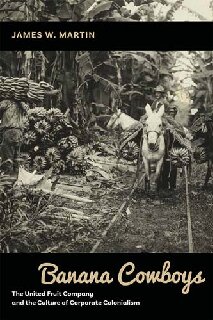

Most ebook files are in PDF format, so you can easily read them using various software such as Foxit Reader or directly on the Google Chrome browser.
Some ebook files are released by publishers in other formats such as .awz, .mobi, .epub, .fb2, etc. You may need to install specific software to read these formats on mobile/PC, such as Calibre.
Please read the tutorial at this link: https://ebookbell.com/faq
We offer FREE conversion to the popular formats you request; however, this may take some time. Therefore, right after payment, please email us, and we will try to provide the service as quickly as possible.
For some exceptional file formats or broken links (if any), please refrain from opening any disputes. Instead, email us first, and we will try to assist within a maximum of 6 hours.
EbookBell Team

4.4
92 reviewsThis study of the United Fruit Company shows how the business depended on these complicated employees, especially on acclimatizing them to life as tropical Americans.
In the 1920s the United Fruit Company (UFC) was the largest agricultural enterprise in the world. It cultivated over 1 million acres of banana plantations and employed sixty-seven thousand people. Company towns in each of the nine UFC divisions (Cuba, Guatemala, Honduras, Costa Rica, Panama, Jamaica and Colombia) provided housing for the skilled white-collar American workers who directed the West Indian and Hispanic mestizos working in the fields.
In a clearly written, well-researched volume, James E. Martin examines the experiences of this group of middle-management men—the so-called banana cowboys—who served as intermediaries between the corporation and its domination of tropical peoples.
His objective is to describe how banana cowboys experienced such “close encounters of empire” and “enacted scientific and cultural imperatives over their surroundings” and to use that information to assess their ability to adapt to tropical life on this unique frontier.
Dividing the book into six chapters, Martin delved into material published by the UFC, the personal papers of its employees and scientists, and an extensive bibliography of published works to show how the company used banana cowboys to enforce a division of labor governed by an ideology of white supremacy; provided medical services through a network of hospitals, laboratories, and field dispensaries; enlisted the loyalty of its Caucasian employees through the ethos of “strenuous masculinity;” and to show how some banana cowboys used their personal leisure time to carry out scientific studies.